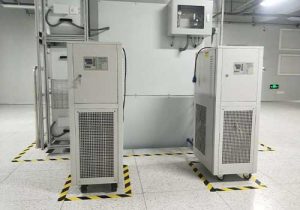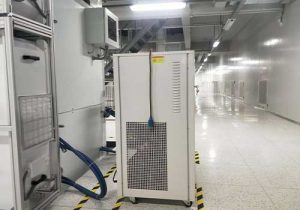industrial water chiller systems
Industrial Water Chiller Systems: Efficiency, Applications, and Innovations
Industrial water chiller systems are an essential component in many industries where precise temperature control is required. These systems circulate chilled water through heat exchangers to cool equipment and processes, ensuring optimal operating conditions and product quality. This article discusses the efficiency, applications, and market trends of industrial water chiller systems.

Efficiency of Industrial Water Chiller Systems
The efficiency of industrial water chiller systems is a critical factor in their performance. Modern chillers are designed to be energy-efficient, with features such as variable speed drives (VSDs) for compressors and pumps, which allow for more efficient operation at partial loads. Chiller systems are also becoming more intelligent, with advancements in technology leading to improved energy efficiency and reduced environmental impact.
Types of Industrial Water Chiller Systems
Industrial water chiller systems can be categorized based on their cooling capacity, design, and compressor type:
Water-Cooled Chillers: These chillers use water as the cooling medium for the condenser, offering high energy efficiency and compact size. They are suitable for indoor applications and can handle wide cooling loads, making them ideal for chemical plants, manufacturing facilities, and medical facilities.
Air-Cooled Chillers: These chillers use air as the cooling medium for the condenser, eliminating the need for cooling towers and water. They are suitable for applications where water scarcity is a concern and can operate smoothly at extremely low temperatures.

Compressor Types: Chillers can also be classified based on their compressor type, such as piston, scroll, screw, and centrifugal compressors. Each type has its own advantages and is suited to different applications and cooling capacities.
Applications of Industrial Water Chiller Systems
Industrial water chiller systems are used in a variety of applications across different industries:
Commercial Buildings: Chillers provide essential cooling effects in commercial buildings, counterbalancing heat from internal and external sources. They are used in offices, retail spaces, hotels, and more to maintain comfortable indoor environments.
Industrial Processes: In industries such as manufacturing, pharmaceuticals, and food processing, chillers play a vital role in managing and controlling temperatures for various processes and equipment. They ensure optimal conditions for production by preventing overheating and maintaining consistency in manufacturing processes.
Data Centers: Chillers are crucial for cooling server rooms, where maintaining a consistent temperature is essential for the proper functioning of IT equipment and preventing overheating.
Market Trends in Industrial Water Chiller Systems
The market for industrial water chiller systems is characterized by several key trends:

Product Innovation: Manufacturers are developing chillers that use low GWP refrigerants, such as HFOs or natural refrigerants like CO2, to reduce the environmental impact of chiller systems.
Energy Efficiency: There is a growing demand for chillers with high energy efficiency, driven by the need to reduce operating costs and environmental impact. Features such as VSDs and smart control systems are becoming standard for improving energy efficiency.
Sustainability: The market is trending towards more sustainable cooling solutions, with a focus on energy efficiency, low GWP refrigerants, and the integration of renewable energy sources into chiller systems.
Smart Technology: The integration of IoT and smart control systems is enabling more precise control of chiller operations, leading to energy savings and improved performance. These systems allow for remote monitoring, control, and predictive maintenance, optimizing cooling efficiency and reducing downtime.
Conclusion
Industrial water chiller systems are a vital component of many industries, providing essential cooling for equipment and processes. The market for these systems is evolving, with a focus on energy efficiency, sustainability, and innovation. As the demand for more sustainable and efficient cooling solutions grows, manufacturers are responding with advanced products that meet these challenges. The future of industrial water chiller systems is likely to include further advancements in energy efficiency, the use of low GWP refrigerants, and the integration of smart technology, ensuring a more sustainable and efficient cooling solutions for various applications.
Related recommendations
How is the Integrated Heating and Cooling Machine used for Temperature Control of the Reactor?
1468How is the Integrated Heating and Cooling Machine used for Temperature Control of the Reactor? Reactor is a kind of equipment used in many chemical and pharmaceutical industries. It is usual...
View detailsheater for oil tank
825Heater for Oil Tank: Maintaining Temperature in Oil Storage Oil tanks, especially in the oil and gas industry, require heaters to maintain the oil's temperature and ensure its proper flow. Heat...
View detailsAdvantages of Air Cooled Chillers
1246Advantages of Air Cooled Chillers Configuration of air-cooled chillerAccording to the compressor, the air-cooled chiller can be divided into an air-cooled scroll chiller and an air-cooled sc...
View details2 ton water chiller price
177IntroductionWhen considering the acquisition of a 2 - ton water chiller, understanding the pricing structure is crucial. A 2 - ton water chiller, with a cooling capacity of 24,000 British Thermal...
View details
 LNEYA Chiller
LNEYA Chiller






HelloPlease log in